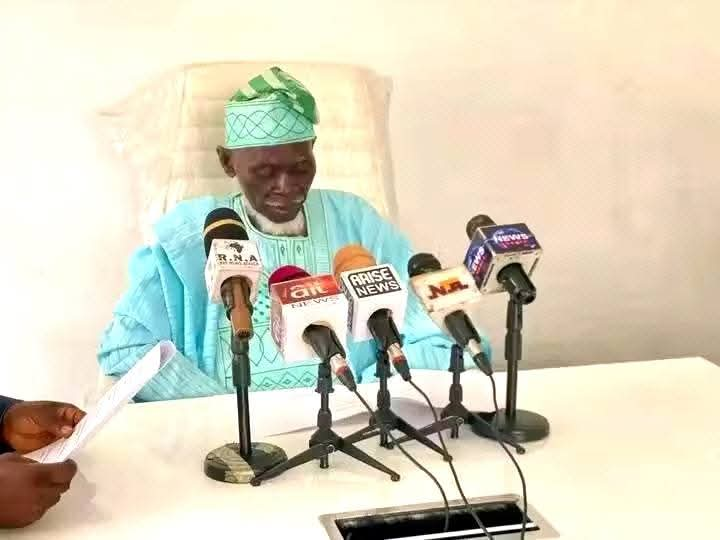Politics
Lamidi Apapa Assumes Leadership of Labour Party After Supreme Court Ruling Against Julius Abure

Lamidi Apapa has declared himself the acting National Chairman of the Labour Party following a Supreme Court judgment that ruled against the leadership of Julius Abure. The development marks a significant turn in the prolonged leadership tussle within the party, which has seen rival factions battle for control over the past year.
The Supreme Court delivered its judgment on Monday, April 8, 2024, effectively setting aside the claims of Julius Abure to the chairmanship of the party. Although the full details of the ruling are still being analyzed by legal experts and party stakeholders, the outcome was interpreted by the Apapa faction as a clear victory and validation of their claim to the party’s leadership.
Speaking to journalists in Abuja shortly after the judgment, Lamidi Apapa said the court’s decision has ended all arguments about who rightfully leads the Labour Party. He described the ruling as a triumph of law and order, adding that the party must now unite under one leadership to prepare for future political engagements.
“With this judgment, the matter is settled. I have now formally taken over the affairs of the Labour Party as the acting National Chairman in line with the constitution of our party and the decision of the court,” Apapa said.
The leadership crisis in the Labour Party began in early 2023 when Julius Abure was suspended by a faction within the party citing alleged misconduct and irregularities. Lamidi Apapa, who was then the Deputy National Chairman (South), stepped in and announced himself as the acting chairman. This move was immediately challenged by the Abure-led faction, resulting in a series of court cases and conflicting injunctions from various courts.
The matter escalated to the Supreme Court after lower courts delivered contradictory judgments on who was the legitimate leader of the party. The apex court’s decision, seen as final and binding, has now reshaped the internal dynamics of the Labour Party.
Despite the ruling, Abure and his supporters have remained defiant, insisting that the court’s decision does not automatically confer legitimacy on the Apapa-led faction. In a brief reaction issued late Monday, Abure’s media team stated that they would consult their legal team and issue a detailed response after reviewing the full judgment.
Sources within the party suggest that Abure’s camp is considering options including seeking a review of the judgment or challenging its interpretation. However, legal experts have noted that Supreme Court rulings are typically conclusive and rarely reversed, especially in intra-party matters.
Meanwhile, Lamidi Apapa has moved swiftly to consolidate his position. On Tuesday, April 9, 2024, he convened a meeting of the party’s National Working Committee (NWC) under his leadership, where he announced plans to restructure key administrative departments and revalidate party membership across the country.
Apapa urged all party members to close ranks and support the current leadership to ensure that the Labour Party remains a viable alternative on the national political scene. He stated that the party must move beyond internal strife and focus on policy development, grassroots mobilization, and credible participation in upcoming elections.
“This is not a time for division. It is a time for rebuilding, for unity, and for restoring confidence in our party,” Apapa said.
The development has sparked mixed reactions among party members and supporters. Some welcomed the Supreme Court ruling as a necessary resolution to the long-standing crisis, while others expressed concern that it could deepen internal divisions and weaken the party’s national profile.
The Labour Party gained significant traction in the 2023 general elections, largely due to the popularity of its presidential candidate, Peter Obi, and growing public dissatisfaction with the country’s major parties. However, the internal leadership crisis has since slowed its momentum, with rival factions issuing parallel statements and engaging in conflicting activities.
As of Tuesday afternoon, INEC had not issued a formal statement in response to the Supreme Court ruling or recognized any new leadership. Observers believe the electoral body will await formal documentation from the court and relevant stakeholders before updating its records.
The coming days are expected to be critical for the Labour Party as it navigates the implications of the court ruling and attempts to reposition itself under the new leadership. Many eyes are now on how Peter Obi and other influential figures within the party will respond to the development and whether they will align with the Apapa-led faction or maintain support for Abure.
